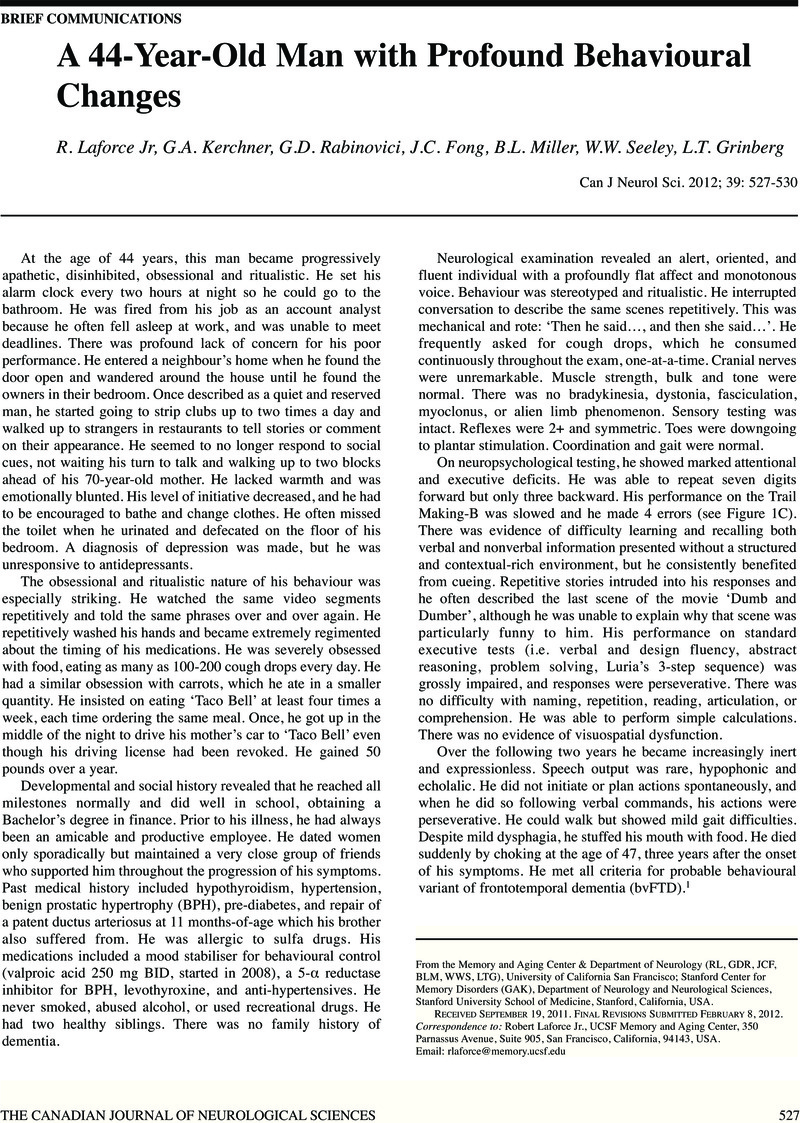Crossref Citations
This article has been cited by the following publications. This list is generated based on data provided by Crossref.
Laforce, Robert
2013.
Behavioral and language variants of frontotemporal dementia: A review of key symptoms.
Clinical Neurology and Neurosurgery,
Vol. 115,
Issue. 12,
p.
2405.



